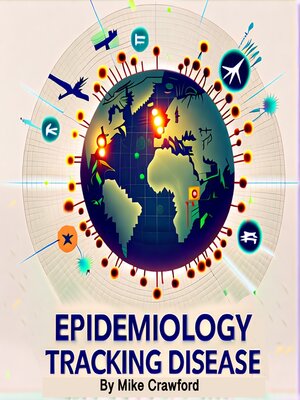
Sign up to save your library
With an OverDrive account, you can save your favorite libraries for at-a-glance information about availability. Find out more about OverDrive accounts.
Find this title in Libby, the library reading app by OverDrive.



Search for a digital library with this title
Title found at these libraries:
| Library Name | Distance |
|---|---|
| Loading... |
Epidemiology is the scientific study of the distribution, patterns, and determinants of health and disease conditions in populations. It serves as the cornerstone of public health, enabling researchers and policymakers to understand how diseases spread, who is most at risk, and what factors contribute to health outcomes. By identifying these elements, epidemiology helps in designing and implementing effective disease prevention and control measures, ultimately improving public health and reducing the burden of illnesses.
The significance of epidemiology lies in its ability to provide a systematic approach to studying health-related issues. Through observation, data collection, and statistical analysis, epidemiologists uncover trends in disease occurrence and evaluate the effectiveness of interventions. This discipline extends beyond infectious diseases, encompassing chronic conditions, environmental health hazards, and even social determinants of health. By examining these factors, epidemiologists can offer insights into the root causes of health disparities and develop strategies to mitigate them.
One of the key contributions of epidemiology is its role in disease surveillance. Monitoring the spread of infectious diseases, such as influenza, tuberculosis, or COVID-19, allows health authorities to implement timely responses, including vaccinations, quarantine measures, and public health advisories. Without epidemiology, controlling outbreaks and minimizing their impact on society would be significantly more challenging.







